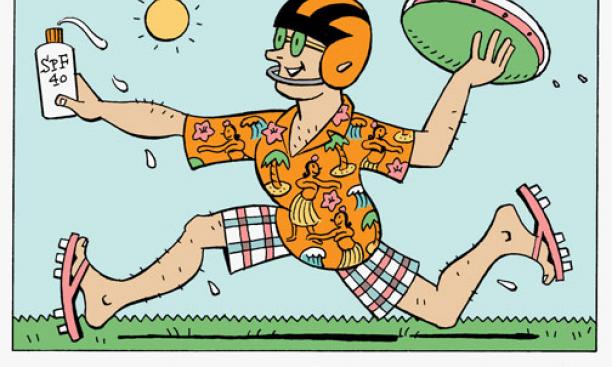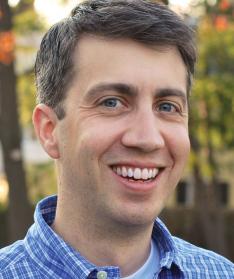

Officially, Ivy League football practices kick off in the last week of August. But for a sizable group of Tigers, the preseason already has started.
Co-captain and safety Phil Bhaya ’14 estimates that about 60 players — more than half of the team — will be on campus during the peak period of summer workouts in July and early August, hungry to build on last year’s turnaround season that saw Princeton transform from a one-win team to an Ivy title contender. “I think what happened last year is a direct result of what we did in the summer [of 2012],” Bhaya says.
The summer sessions are student-run and voluntary; under NCAA rules, only the team strength and conditioning coaches can be directly involved. But with a few years of practice under their belts, the captains and other team leaders have a good sense of what coaches would like them to work on.
Princeton’s summer contingent meets every weekday at 6:30 a.m. for running and weightlifting sessions before showering and heading off to their daytime gigs — campus jobs, internships in town, research projects, or summer courses for incoming freshmen. Twice a week, they come back in the late afternoon for drills and non-contact scrimmages.
While the players aim to get bigger, stronger, and faster, they also appreciate having more relaxed routines away from the field. Max Coale ’14, who returned to campus in June to begin research for his ecology and evolutionary biology thesis, was the de facto chef for the offensive line’s family-style meals last summer, cooking mammoth spaghetti dinners that included a half-dozen boxes of pasta and 100 meatballs. It was a welcome change from the school year, he says, when players typically leave practice, scarf down a meal, and get started on their coursework.
Spending the summer with a few dozen friends may seem like a no-brainer, but it also can mean passing up opportunities that other Princeton students value, such as studying abroad, working in a field of special interest, or simply spending time with family and friends at home. Defensive lineman Greg Sotereanos ’14 says it can be a tough choice. If you leave campus and lag behind in your workouts, it might mean less playing time in the fall. Two of his roommates opted for big-city internships this year; Sotereanos stayed on campus for the fourth consecutive summer.
The ethos of team sports is one of shared sacrifice, so it’s no surprise to see players signing on for extra workouts in hopes that they will translate to victories on the field. Ultimately, Bhaya says, the summer is for doing what you enjoy most: “It might not seem as obvious when you’re sweating through a workout, but we love playing football.”
Brett Tomlinson is PAW’s digital editor and writes frequently about sports.

